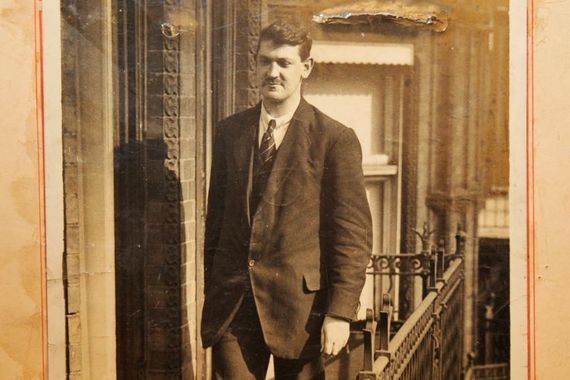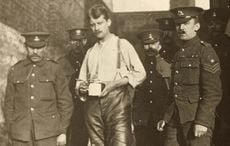Exactly one hundred years ago to this day, 8th of October 1921, the death knell of a United Ireland sounded and Michael Collins knew he was signing his death warrant.
The announcement of the teams on both sides negotiating the Irish Treaty after a bloody War of Independence treaty was made showed what a terrible disadvantage the Irish side had.
On October 8th, 1921, The London Times reported that Michael Collins was up against the Prime Minister, David Lloyd George, Mr. Chamberlain, the Lord Chancellor, Mr. Churchill, Sir L Worthington Evans, Sir Hamar Greenwood and Sir Gordon Hewart, the Attorney-General, who would be a member when constitutional questions were under consideration.
Two prime ministers in effect were ready for Collins as well as top cabinet figures. Churchill, probably the wiliest British leader in history, was chosen to sort out the Irish who were missing their ultimate leader Eamon de Valera.
Collins and De Valera had a pact Collins thought. He would do war and De Valera would do politics. Not so, however.
The full Collins delegation, some like Collins just out of their military uniforms, were unskilled negotiators.
The Times noted: “Mr. Griffith, Mr. Collins (Minister of Finance), Mr. Barton (Minister for Economic Affairs), Mr. Gavan Duffy, and Mr. K J Duggan, chief liaison officer. Mr. Erskine Childers and Mr. Fininan Lynch will accompany them as secretaries to the delegation, and Mr. Desmond FitzGerald will act as Minister for Publicity.”
“Large numbers of Irish people in London are expected to assemble outside Euston station to welcome them. Two private houses have been taken for their accommodation during their stay.”
The British pols, lords, and nobles had been sorting out the future of colonies all over the world for centuries. Ireland would be just one more. They had little respect for their adversaries led by a 30-year-old Cork man, a great soldier and unskilled negotiator.
But making matters worse was the vicious sentiments of previous prime minister Bonar Law who threatened bloodshed if the British did got get their way
He knew the strength of the Unionist thugs behind him and their threats to fight loomed over the negotiations every day,
Collins knew there would be no going back to war. He himself had been the Scarlet Pimpernel but now they had pictures galore. Equally, the locations of local IRA leaders, arms dumps, etc. were now known to the enemy.
It was an impossible task. He knew De Valera hated him for his popularity and openness. Any slip and De Valera would crush him.
The crowds as predicted were massive both in Dublin and London as the Irish arrived. Many had tears in their eyes. Was it possible there would be a free Ireland? Collins was thinking the worst but knew he had to hope for the best, October 8th, 1921 was when they set out for London for their appointment with history. It would not go well.




Comments